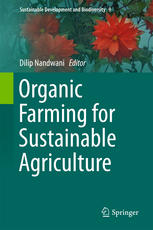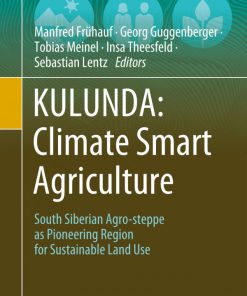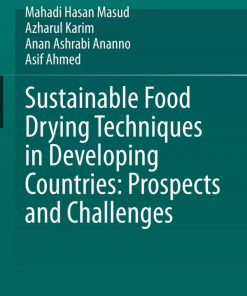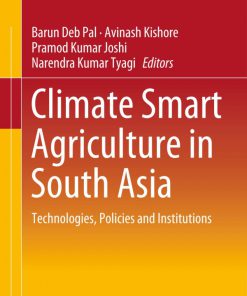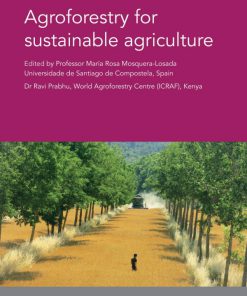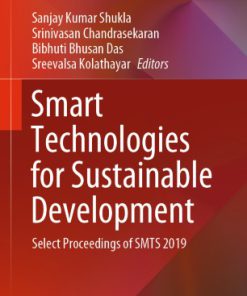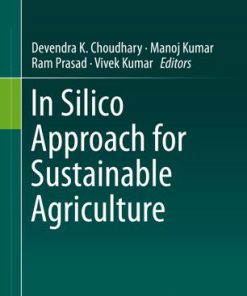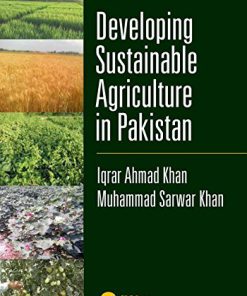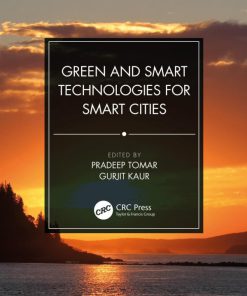Smart technologies for sustainable smallholder agriculture upscaling in developing countries 1st Edition Chikoye
$50.00 Original price was: $50.00.$25.00Current price is: $25.00.
This completed downloadable of Smart technologies for sustainable smallholder agriculture upscaling in developing countries 1st Edition Chikoye
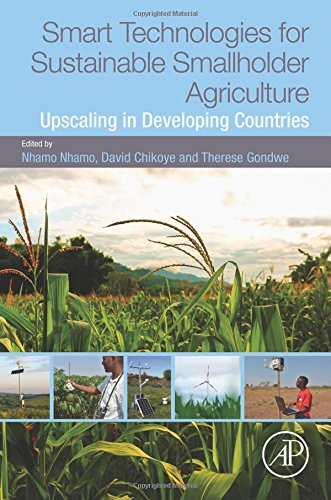
Instant downloaded Smart technologies for sustainable smallholder agriculture upscaling in developing countries 1st Edition Chikoye pdf docx epub after payment.
Product details:
- ISBN-10: 9780128105214
- ISBN-13: 978-0128105214
- Author: David Chikoye, Therese Gondwe, Nhamo Nhamo
Smart Technologies for Sustainable Smallholder Agriculture: Upscaling in Developing Countries defines integrated climate smart agricultural technologies (ICSAT) as a suite of interconnected techniques and practices that enhance quantity and quality of agricultural products with minimum impact on the environment. These ICSAT are centered on three main pillars, increased production and income, adaptation and resilience to climate change, and minimizing GHG emissions.
This book brings together technologies contributing to the three pillars, explains the context in which they can be scaled up, and identifies research and development gaps as areas requiring further investigation. It stresses the urgency in critically analyzing and recommending ICSAT and scaling out the efforts of both developing and disseminating these in an integrated manner.
The book discusses, synthesizes, and offers alternative solutions to agriculture production systems and socio-economic development. It brings together biophysical and socioeconomic disciplines in evaluating suitable ICSAT in an effort to help reduce poverty and food insecurity.
Table of contents:
Chapter 1. Smart Agriculture: Scope, Relevance, and Important Milestones to Date
Chapter 2. Climate Scenarios in Relation to Agricultural Patterns of Major Crops in Southern Africa
Chapter 3. Advancing Key Technical Interventions Through Targeted Investment
Chapter 4. Exploring Climatic Resilience Through Genetic Improvement for Food and Income Crops
Chapter 5. Enhancing Gains From Beneficial Rhizomicrobial Symbiotic Communities in Smallholder Cropping Systems
Chapter 6. Reducing Risk of Weed Infestation and Labor Burden of Weed Management in Cropping Systems
Chapter 7. Opportunities for Smallholder Farmers to Benefit From Conservation Agricultural Practices
Chapter 8. The Use of Integrated Research for Development in Promoting Climate Smart Technologies, the Process and Practice
Chapter 9. Taking to Scale Adaptable Climate Smart Technologies
Chapter 10. Food Processing Technologies and Value Addition for Improved Food Safety and Security
Chapter 11. Models Supporting the Engagement of the Youth in Smart Agricultural Enterprises
Chapter 12. Enabling Agricultural Transformation Through Climate Change Policy Engagement
Chapter 13. Integrated Assessment of Crop–Livestock Production Systems Beyond Biophysical Methods: Role of Systems Simulation Models
Chapter 14. Adaptive Livestock Production Models for Rural Livelihoods Transformation
Chapter 15. Delivering Integrated Climate-Smart Agricultural Technologies for Wider Utilization in Southern Africa
People also search:
what are the limitations of the current smart technologies
smart technologies address
smart technologies ahmedabad gujarat
advantages of using smart technologies in education
advantages of using smart technologies in home environment
You may also like…
Biology and other natural sciences - Plants: Agriculture and Forestry
Organic Farming for Sustainable Agriculture 1st Edition by Dilip Nandwani 3319268031 9783319268033
Biology and other natural sciences - Plants: Agriculture and Forestry
Engineering
Politics & Philosophy - Government & Politics
Climate Smart Agriculture in South Asia Technologies Policies and Institutions Barun Deb Pal
Biology and other natural sciences - Plants: Agriculture and Forestry
Agroforestry For Sustainable Agriculture 1st Edition María Rosa Mosquera-Losada
Engineering - Environmental
Smart Technologies for Sustainable Development Select Proceedings of SMTS 2019 Sanjay Kumar Shukla
Biology and other natural sciences - Plants: Agriculture and Forestry
In Silico Approach for Sustainable Agriculture Devendra K. Choudhary
Biology and other natural sciences - Ecology
Engineering
Green and Smart Technologies for Smart Cities 1st Edition by Pradeep Tomar 0429846892 9780429846892




